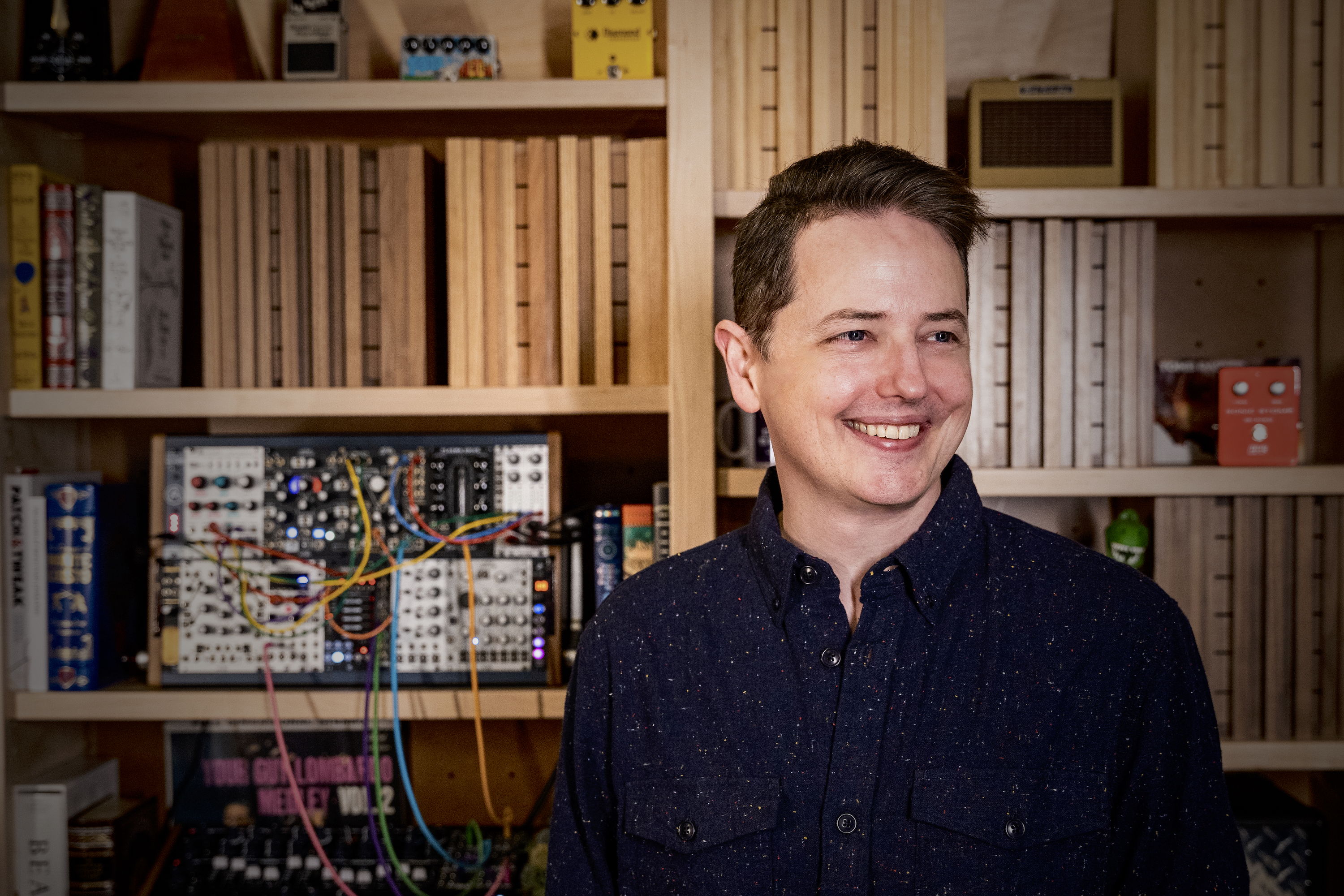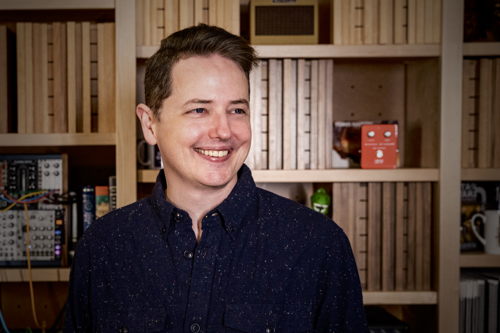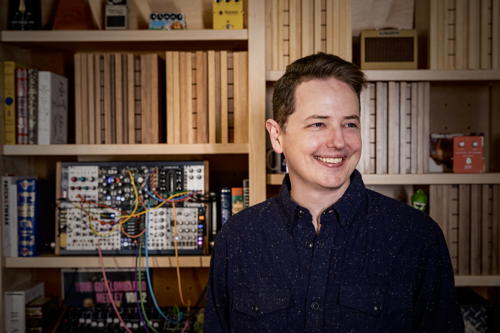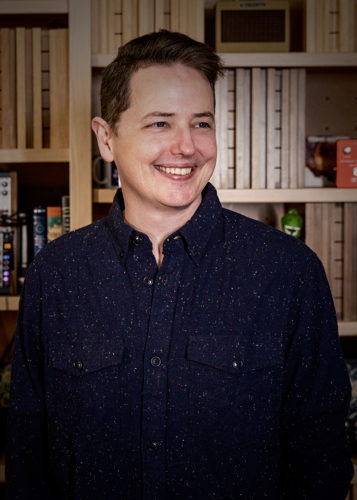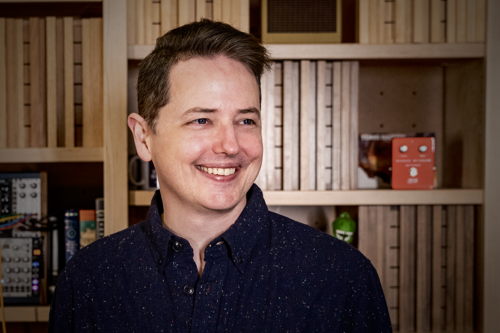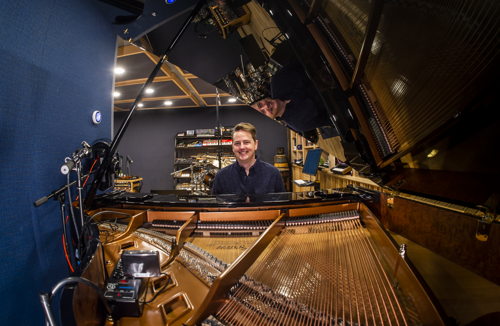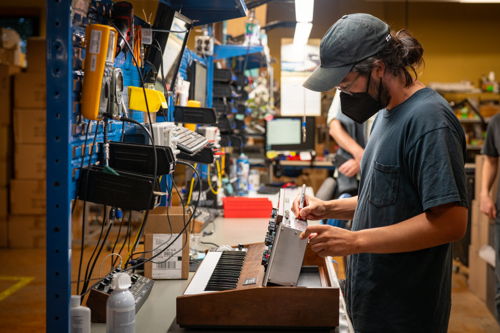Jason Graves' Rediscovery of the Moog Model D
Two-time BAFTA award-winning composer discusses his recent visit to the Moog factory, and making 'otherworldly' soundtracks for gaming
Asheville, NC, June 27, 2024 — Two-time BAFTA award-winning, classically trained composer and world percussionist Jason Graves has been writing music for film and TV for almost three decades. About 25 years ago he also began composing for games and has since created original music soundtracks and soundscapes for well over 100 titles, including No Rest For The Wicked, Call of Duty: Modern Warfare II and Warzone, The Dark Pictures Anthology, Moss 1 & 2, Tomb Raider, Far Cry Primal, Until Dawn, The Order: 1886 and the Dead Space trilogy. A longtime Moog synth and drum machine owner and a North Carolina resident, Graves recently visited the Moog factory in Asheville for the first time to pick up a reissued Minimoog Model D.
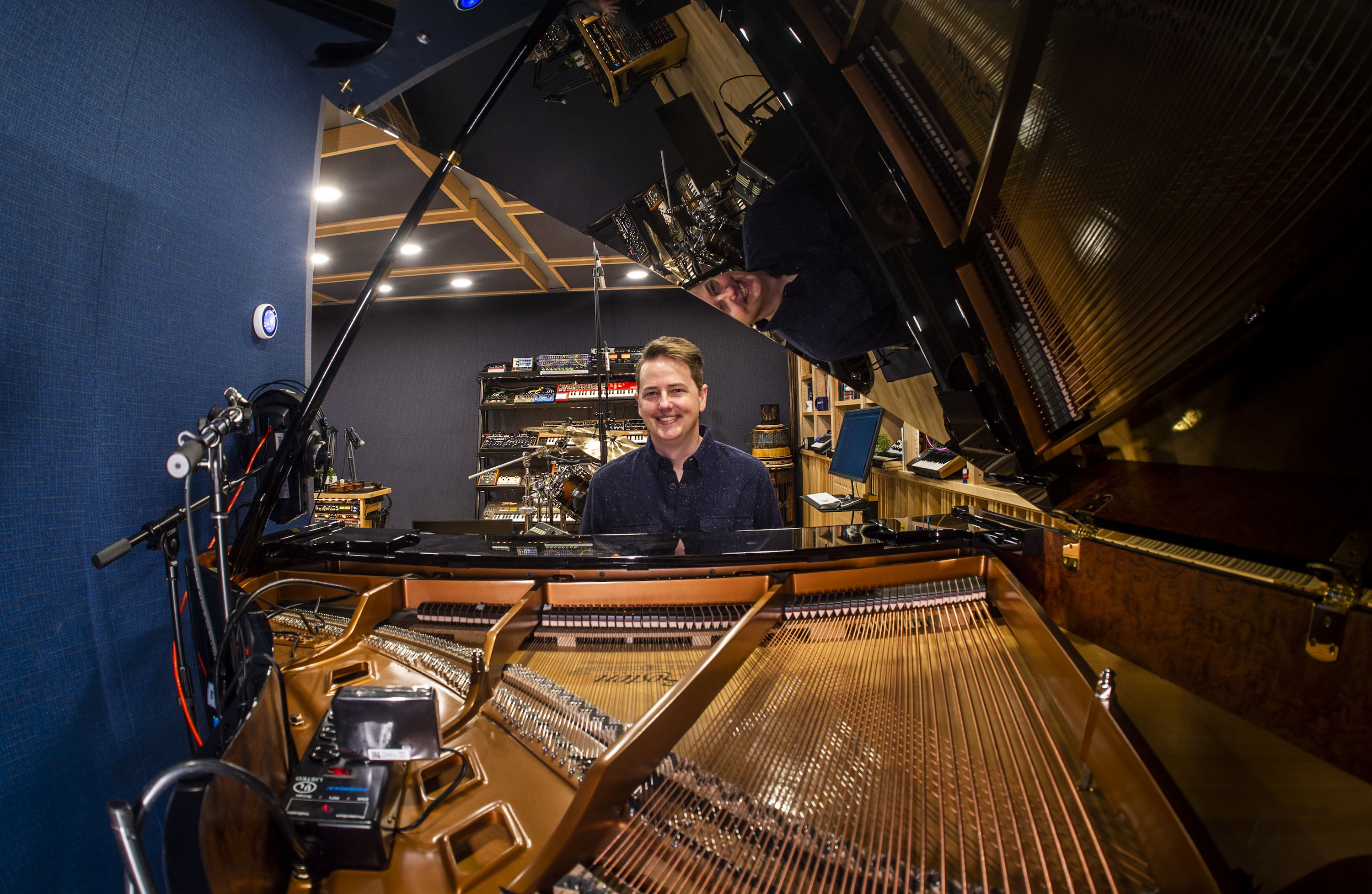
How has your experience as a trained classical musician informed what you're doing now?
I think that I'm probably the exact same person I was 25 years ago. Inside I feel like that 17-year-old kid who's still taking piano lessons, learning to play the marimba, teaching myself guitar, taking bass guitar lessons and playing drums in a band. But now I'm doing it on a much larger scale with more friends. My band director in high school showed me a synthesizer, because he was playing in a pop band. He played a string patch, a slap bass patch, a drum set, then an electric piano sound. I said, whatever that is, that's everything that I want to do.
I went to college with all those things kind of mixed up in my brain. My music composition professor was also the percussion professor, and also taught the electronic music ensemble, the steel band, and the African, Middle-Eastern and Irish music ensembles. I did all of those things — and, essentially, that's what I'm still doing now. I've got keyboards, drums and stringed instruments everywhere and what I really love doing is playing them to the best of my ability, and hiring people who are better than I am when I need to do other things.
With synthesizers you can not only mimic other sounds, but you can find sounds that never existed.
Through high school, I chased trying to sound like other instruments with synths — using the bass guitar sound from the synth to try to sound like a bass guitar. But once I got into college, I discovered that synths could make their own language and their own sounds, and even a synthesized string sound has its own set of organic properties that you can't do with normal strings. In the last 10 or 15 years, I've been trying to push those boundaries and use live players to sound like live players, but I want to use synthesizers to make synthesizer sounds that only synthesizers can make. Then you get that nice dichotomy of real and unreal.
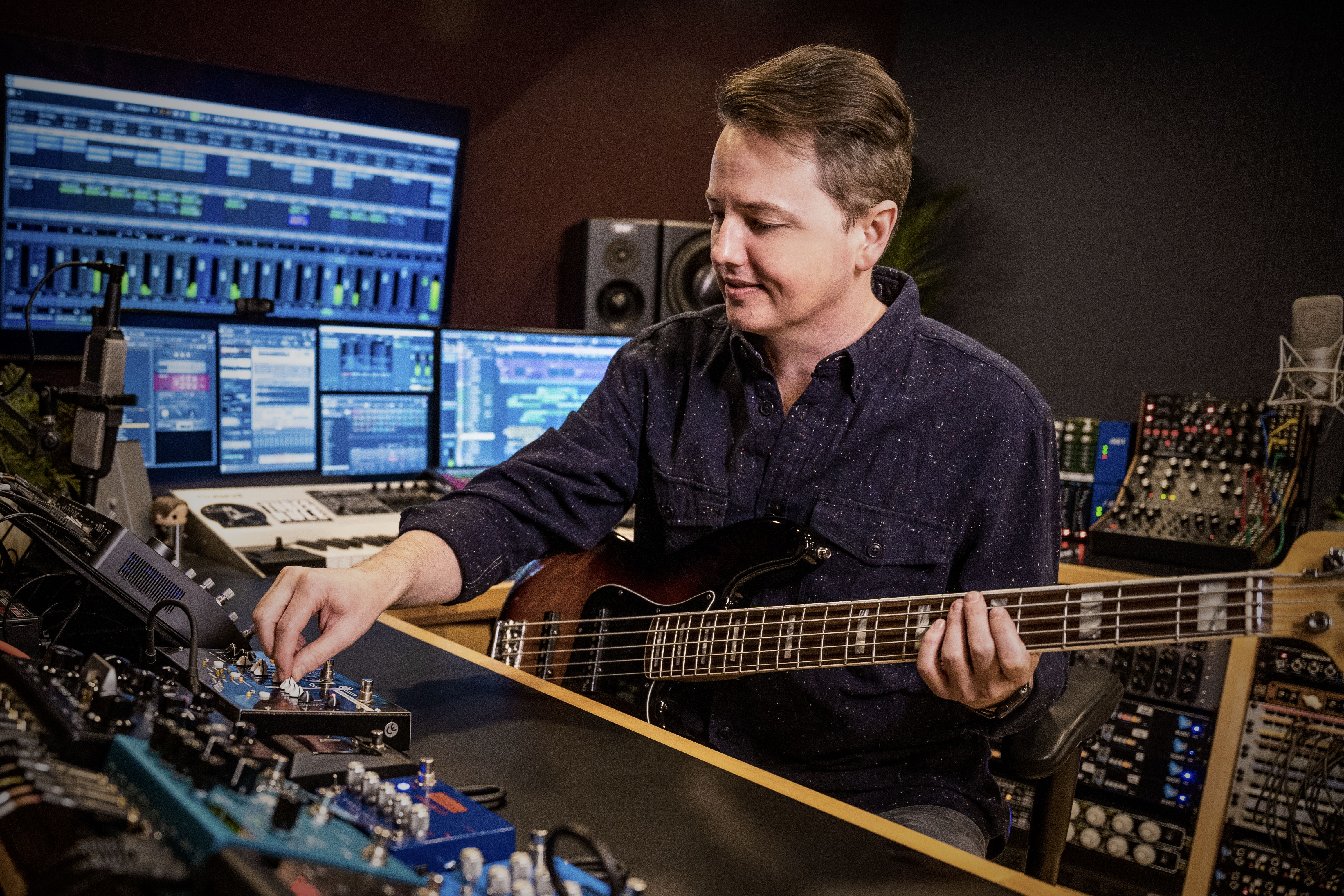
What’s your typical process?
I'm recording the whole time and when I get to another sound, I hit stop. Then I mess with something else and when I find something interesting, I hit record. I'm in a tempo and I'm just trying all this stuff. After a couple of hours, I just have tracks and tracks and tracks. It's basically my bespoke sample pack. Then I start moving things around, and maybe add some delay, filters and that becomes the skeleton of the tracks. I will play my own percussion then the other musicians add what they feel is important. The more space they have, the freer they are to be creative. I carve away what they send and those are the final produced tracks.
Talk a bit about your visit to the Moog factory in Asheville and discovering the new Model D.
Every game, TV show, film or trailer, I try to use a whole different set of instruments, which is one of the reasons I have so many instruments. 15 years ago, I got a Slim Phatty and later replaced it with a Sub Phatty, Subsequent 37, the DFAM and the Mother-32. But what I really wanted was a Model D. I'm always thinking about the perfect combination of sounds that are going to work for a specific job, so when this Still Wakes the Deep project came along, I wanted something with low end and presence, but that could also sound otherworldly.
I had never visited the factory, because I wanted to go with the intent of buying something important — I wanted to make it count. I saw that the Model D was being reissued and thought, ‘I could go to the factory and get one.’ The five or six people that built it were there. It had my name on the tag, and everybody had signed it. And they put some kind of special maple on the back of it. I just felt like they were rock stars. It's such a testament to North Carolina. Being here practically all my life and slowly acquiring these other Moog pieces, this was the pinnacle for me.
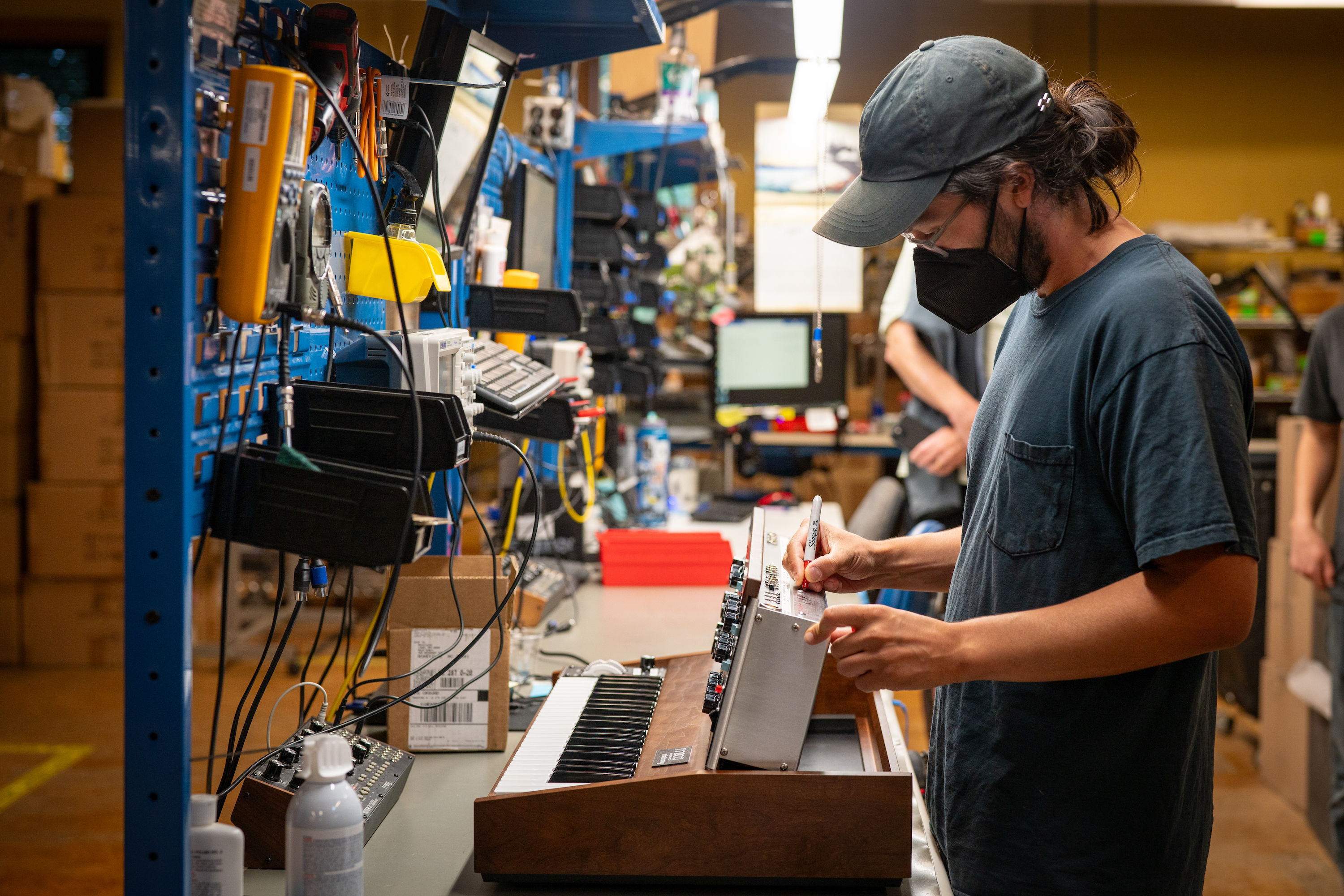
When you started playing with the Model D, did it open up possibilities for the sounds that you were able to get versus other synths that you worked with in the past?
I think the Model D has been on everything I've done since I since I got it. I'm doing an orchestral score right now for this big fantasy project called No Rest for the Wicked, and it's the sub that underpins the entire score. It's basically just playing through everything, either as short notes or little swells. It's so solid and just sits there perfectly.
It's hard to put into words, but there’s a thickness to the sound. Especially when you detune things a little bit; you get this live oscillating sort of thing. You just turn a knob a tiny bit and then something else starts reacting a little bit. Having the separate LFO with the push button on the LFO rate knob blew my mind; I could push two LFOs against each other and even have them be different shapes. It's just so consistent, rich, fat, cinematic — and iconic. It elevates the whole piece. When I start sound designing, within three minutes I'm in a completely different world. I never even knew a synthesizer could make that sound. And that goes in the game.
About Moog Music
Moog Music is the leading producer of analog synthesizers in the world and part of inMusic, a family of leading music technology and consumer electronics brands. The company and its customers carry on the legacy of its founder, electronic musical instrument pioneer, Dr. Bob Moog.
Jeff Touzeau
2423_Moog_JasonGravesF.docx
DOCX 2.5 MB
